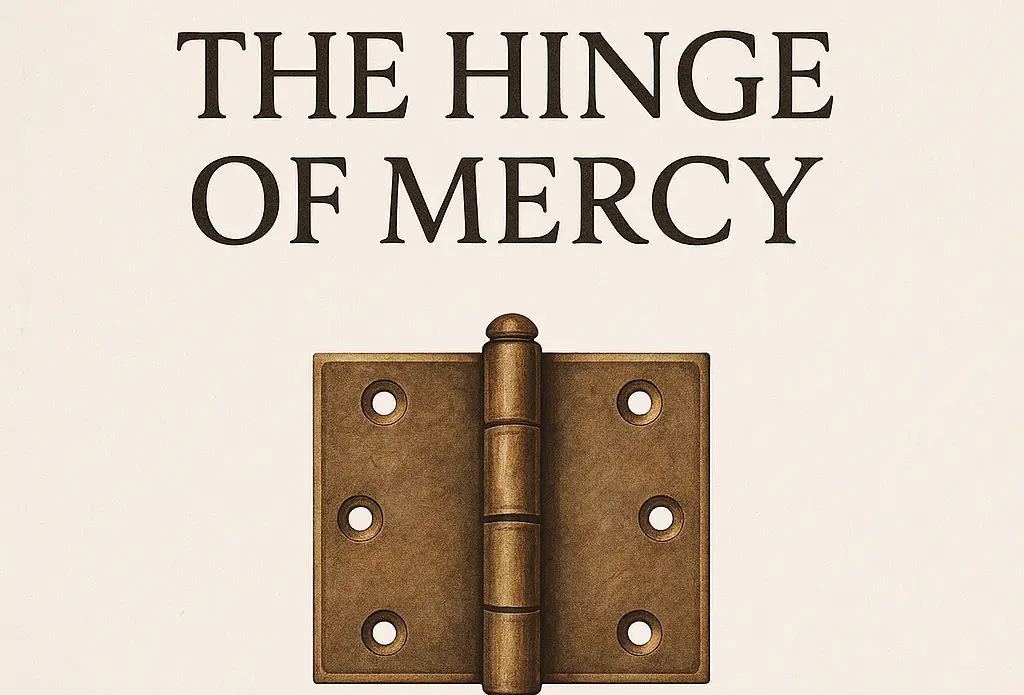We’ve talked about the five doors of love.
But now we have to talk about the key.
Because truthfully, many people know about agape love.
They’ve studied it. Preached it. Cried over it.
But they still haven’t become it.
They still can’t get through the doors.
They try. They serve. They press in.
But they keep ending up on the other side of love, staring at a door that won’t open.
Not because they aren’t passionate. Not because they don’t believe.
But because they haven’t picked up the key.
Mercy is the Key.
Mercy is not the end of love. It’s the beginning.
It is the key that unlocks the movement of love inside of you.
The moment you receive it—not just conceptually, but formationally—you stop trying to act like Jesus and start being transformed into His likeness.
That’s what mercy does. It opens the soul.
It humbles the pride.
It silences the performance.
It confronts the self-righteousness that says, “I’m better than them,” and replaces it with the whisper, “But for mercy, I’d be lost too.”
Mercy is not pity.
It is not passive.
It is power in humility.
It is the heart of God extended through you—not because someone deserves it, but because you finally realize you didn’t either.
This is why mercy is the key.
You cannot unlock any door of love until you realize what love had to overcome to reach you.
And until you let that realization shape you, you will keep your love locked in rules, preferences, performances, and pride.
But when mercy becomes your mirror, you stop measuring people by what they’ve done and start seeing them by what God says.
Now love can begin to flow.
Mercy is ALSO the Hinge.
If mercy is the key that turns the lock, it is also the hinge that lets the door swing.
Because without a hinge, the door doesn’t move.
Without mercy, the agape love of God remains vertical. It stays as a revelation in prayer, but it doesn’t show up in real relationships.
Mercy is what connects divine love to brotherly love.
Agape is the source.
Philadelphia is the outflow.
Mercy is the hinge.
Without that hinge, we keep “feeling loved by God” but “failing to love one another.”
We carry the theory of love without the flow of love.
That’s the problem.
We say we know God’s love, but we still resent people.
We sing about grace, but we still size people up.
We receive communion, but we refuse connection.
And the reason is simple: we skipped mercy.
We thought agape could move through us without first breaking us.
But mercy is the breaking. Mercy is what humbles you enough to become love instead of just doing it.
You don’t become love by effort. You become love by letting mercy rearrange your framework.
Now when someone fails, your default is compassion.
When someone is slow, your instinct is patience.
When someone is messy, your reflex is grace.
Because mercy did something inside of you. It didn’t just unlock the truth of God’s love. It opened the flow of it.
Touching the Table
And this brings us to the most tangible part of the whole journey: the table.
You cannot talk about love, mercy, or transformation without talking about communion.
Because the table is not symbolic. It is formational.
When you eat and drink at the Lord’s Table, you are not performing a religious act. You are touching the love that came for you. The mercy that bled for you. The truth that did not wait for you to be ready, but broke itself open to make you whole.
The table reminds you that mercy has a cost.
It’s not sentimental. It’s sacrificial.
It’s not theoretical. It’s incarnational.
It was His body. Broken. For you.
It was His blood. Poured out. For the forgiveness of sins.
Not just your sins.
But also the sins of the person who offended you.
The one you can’t forgive.
The one you think doesn’t deserve love.
The one you’re sure God should be done with by now.
The table won’t let you stay superior.
It makes you sit across from Jesus and look at your own mess and then watch Him set others around you to embrace you while you walk through it.
Then it invites you to become what you received.
You touch the table, and it touches you.
Now you are no longer someone who talks about agape love.
You become someone who walks in it.
Because the mercy that met you has now been formed in you.
And it opens the flow.
The table becomes the altar of re-formation.
It’s where mercy is digested.
It’s where love becomes muscle memory.
It’s where identity is realigned.
So Here Is the Journey:
- You receive agape.
- You respond with surrender.
- You touch the table.
- Mercy breaks the pride.
- Mercy unlocks the first door.
- Mercy becomes the hinge.
- Love flows.
- You are overwhelmed.
- And brotherly love begins.
This is not emotional. It is covenantal.
This is not based on personality. It is based on Presence.
This is not a technique. It is a transformation.
Mercy is the key.
Mercy is the hinge.
And the Table is where it is forged.
